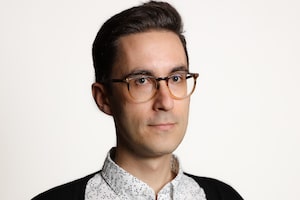Dr. Geoffrey Hinton, an artificial intelligence pioneer, at his home in Toronto on April 24. Mr. Hinton is leaving Google so that he can freely share his concern that AI could cause the world serious harm.CHLOE ELLINGSON/The New York Times News Service
Pioneering artificial intelligence researcher Geoffrey Hinton has quit his position at Google in order to speak freely about the dangers posed by AI, saying that part of him regrets his life’s work.
Mr. Hinton told The New York Times that he informed Google last month he would be stepping down from the company, where he has served as a vice-president and engineering fellow. Chief among his concerns is that generative AI systems can overwhelm the internet with fake photos, videos and text, impairing people’s ability to differentiate truth from fiction. Mr. Hinton told the newspaper he is also worried about job losses and the potential for AI to outsmart humans in the longer term.
“The idea that this stuff could actually get smarter than people – a few people believed that,” he told the Times. “But most people thought it was way off. And I thought it was way off. … Obviously, I no longer think that.”
He did not respond to an interview request from The Globe and Mail.
Mr. Hinton is only the latest AI researcher to call out the dangers of the technology publicly. But as one of the most influential figures in the field, both in Canada and abroad, his voice carries a lot of weight. Mr. Hinton, 75, is an emeritus professor of computer science at the University of Toronto and the chief scientific adviser at the Vector Institute at Toronto, and is perhaps best known for his work on artificial neural networks, which learn to complete tasks by analyzing copious amounts of data.
One of his breakthroughs happened in 2012, when he built a neural network that could train itself to identify common objects in pictures with a high degree of accuracy, helping pave the way for the generative AI that exists today. Google soon acquired his startup, DNNresearch. A number of his students have gone on to become leaders in the industry, including Ilya Sutskever, one of the co-founders of OpenAI.
Will AI take over the world? And other questions Canadians are asking Google about the technology
While AI-generated text and images have been in development for years, OpenAI kicked off an arms race among tech giants when it released ChatGPT in November. The program is capable of writing fluent prose and computer code, carrying on conversations, and answering questions (though not always accurately). Microsoft has invested heavily in OpenAI and launched an AI-powered version of its Bing search engine.
Google parent company Alphabet, not wanting to be left behind and worried about its own search business, has released its own chatbot.
Mr. Hinton clarified on Twitter that he did not leave the company in order to criticize his former employer specifically, but rather to speak broadly about the risks of AI. “Google has acted very responsibly,” he wrote.
Fears about AI have progressed as quickly as the technology. In March, a number of tech executives and researchers, including Montreal’s Yoshua Bengio, signed an open letter calling for a six-month pause on the development of some AI systems, citing “profound risks to society and humanity.”
Mr. Hinton did not sign the letter. (“No thanks,” he told The Globe when asked for comment at the time.)
Some critics of the letter have argued the risks it cites are overblown and hypothetical.
In April, a group of Canadian startup chief executives and AI researchers released another open letter calling on the federal government to quickly pass legislation that would regulate artificial intelligence. Mr. Hinton was among the signatories on an early draft, but withdrew his name before the final version of the letter was released.
Mr. Hinton is also an early financial backer of Toronto-based Cohere, an AI company that develops language processing technology and competes with OpenAI. Co-founder Nicholas Frosst was Mr. Hinton’s first hire at Google’s AI research lab in Toronto.
“Very excited for Geoff Unchained,” Mr. Frosst said on Twitter Monday.
 Joe Castaldo
Joe Castaldo